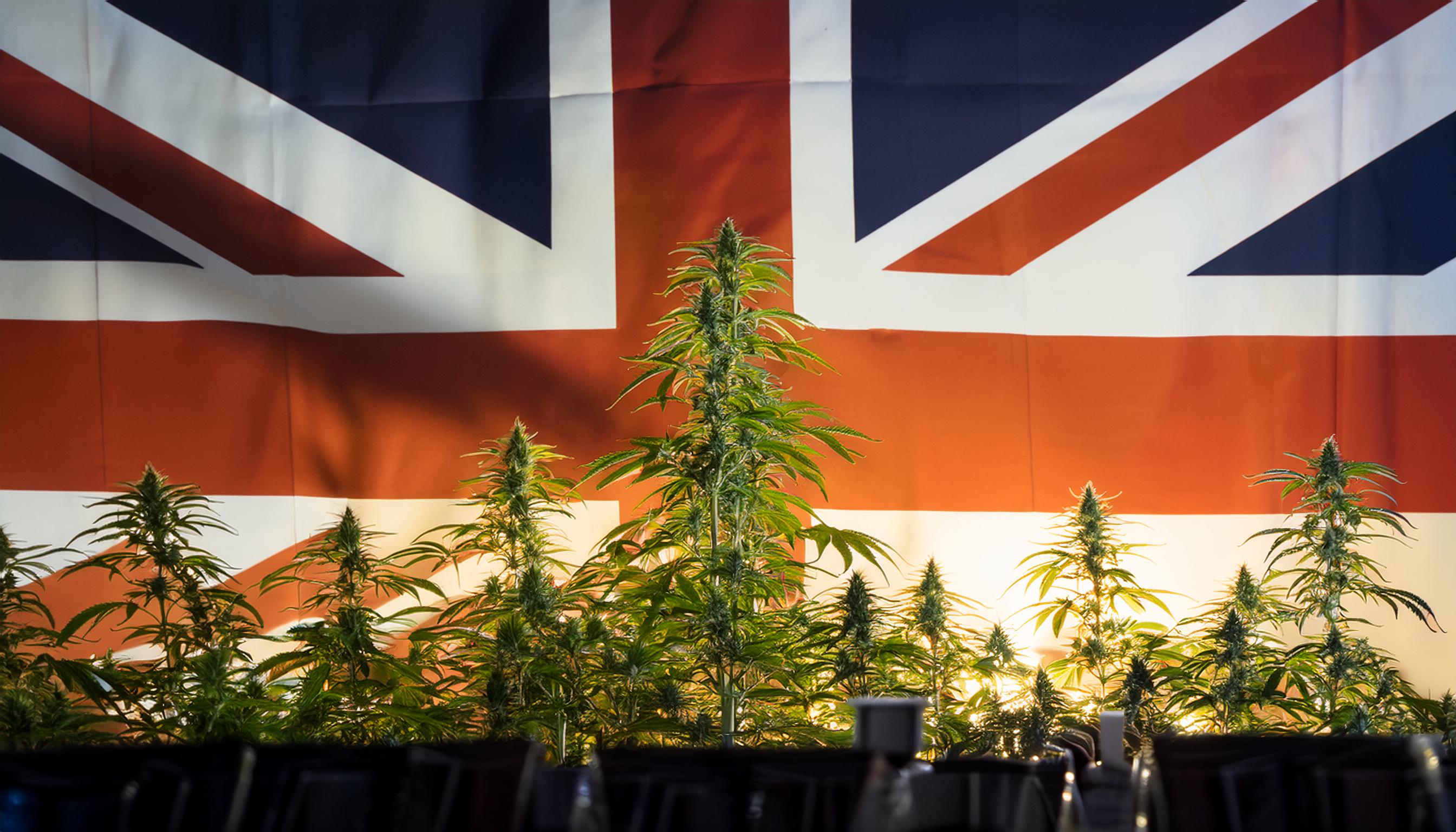How Recent Regulatory Changes are Shaping the Cannabis Industry In The UK
Aug 12, 2024
Regulation modifications are now a major factor influencing how the cannabis business develops internationally. Reassessing cannabis regulations in recent years has seen nations like the UK strike a balance between public health, safety, and economic potential.
These changes in regulations affect not just companies and farmers but also the general public's perception and governmental decisions. Here's a closer look at how the cannabis industry is changing in England as a result of recent legislative reforms.

Launch Your Legal Cannabis Business
Take the First Step to Your Cannabis Success.
Discover how Dr. Green can help you sell cannabis legally and expand your reach globally. Join the movement and be part of the future of cannabis.
Hemp Licensing Changes in the UK: A Boost for the Economy
A noteworthy regulation change in the United Kingdom pertains to industrial hemp, which is a strain of cannabis containing less than 0.2% THC.
The crop is receiving increased attention from the government; it has been utilised lawfully in textiles, building, and possibly even in mitigating climate change through carbon capture.
Recent modifications to hemp licensing are intended to assist regulated producers and draw capital to the hemp sector. They will become effective for the 2025 growing season.
The maximum licence length will be increased from three to six years, provided that the terms are followed, and farmers will be permitted to cultivate hemp anywhere on a licensed farm under the new legislation. Furthermore, a deferred licensing start date of up to a year is a possibility.
The government's goal to lessen needless regulatory burdens on companies while maintaining public safety is reflected in these changes.
In accordance with recommendations from the Advisory Council on the Misuse of Drugs, the UK government is also thinking about raising the allowed THC level in industrial hemp from 0.2% to 0.3%.
Although the aforementioned modifications present novel prospects for cultivators and producers, they uphold stringent regulations on cannabis consumption, imposing severe sanctions for any unlawful possession or distribution of cannabis.
The Broader Cannabis Debate: Will the UK Follow Global Trends?
Regulations pertaining to industrial hemp are being loosened, but there is still much controversy around the UK's wider legalisation of cannabis.
In 2016, the UK ranked as the world's top exporter of legal cannabis; nonetheless, cannabis for recreational use remains illegal and falls under the Class B drug category.
The government's opposition to full legalisation is reflected in this classification, which entails severe penalties for distribution and possession.
But in the UK, support for cannabis reform is rising due to its possible social and financial advantages.
Surveys show that most British adults are in favour of legalising cannabis for recreational use, reflecting the growing public consensus in favour of the policy.
International trends and the change in public opinion may force UK political parties to reevaluate their positions on cannabis laws.

Build Your Cannabis Legacy
Your Path to Legal Cannabis Sales Starts Here.
Partner with Dr. Green to legally sell cannabis and grow your business on a global scale. The green revolution is calling – are you ready to answer?
Medical Cannabis: Limited Access, Growing Demand
2018 saw the legalisation of medical marijuana in the UK, mostly as a result of public pressure following high-profile instances in which the drug successfully treated childhood severe epilepsy.
Even while this was a big step forward, there are still barriers to accessing medical cannabis because of expensive and stringent laws. Prescriptions for it can only be written by specialists, and they are typically only available through private clinics.
Notwithstanding these obstacles, it is anticipated that the medicinal cannabis market in the UK will expand as a result of initiatives by groups like the Cannabis Industry Council to amend the legislation to let general practitioners to recommend cannabis-based medications.
It's important to understand the difference between medical and recreational cannabis because the former is designed with lower THC concentrations for therapeutic purposes.
Economic Implications of Legalisation
Letting cannabis be legal in the UK might have a big economic impact. Legalisation might result in significant tax money for the government; projections place the potential earnings from a legal cannabis sector between £1 billion and £3.5 billion yearly.
Funding for public services like infrastructure, education, and healthcare might come from this money. Legalisation may also result in the creation of 10,000–41,000 new jobs in the cannabis sector, including manufacture, retail, and cultivation.
Shifting from an unregulated market to a regulated sector may also result in enhanced quality control and product safety, lowering the possibility of hazardous materials.
This change may relieve burden on the police and courts, reduce criminal activity linked to the illegal cannabis trade, and save hundreds of millions of pounds in law enforcement expenses.
Public Health and Safety: Balancing Benefits and Risks
Legalising cannabis will have complicated effects on society and health in addition to obvious economic rewards.
Medical cannabis provides safe and regulated therapeutic choices for individuals suffering from chronic pain, epilepsy, and other ailments. However, there are still worries over cannabis use's long-term repercussions, especially with regard to mental health.
Any step towards legalisation must address these problems by enacting strict laws governing the potency and quality of products, correctly labelling them, and launching public awareness efforts to reduce the risks connected to cannabis usage.
Insights into how the UK might approach these difficulties can be gained from studying nations like Uruguay and Canada, where cannabis use is legal.
Sell Cannabis Legally
Start Your Cannabis Empire Today.
Unlock your digital key to selling cannabis legally and globally with Dr. Green. Don’t miss your chance to join the green revolution.
The Road Ahead: Speculations and Future Possibilities
It is challenging to forecast when cannabis will be fully legalised in the UK because it depends on a number of variables, such as popular opinion, global trends, and governmental priorities.
However, some experts predict that full legalisation in the UK may occur over the next five to ten years due to increased public support and mounting pressure from advocacy groups.
In order to make sure that any regulation reforms support public health, safety, and social fairness, the UK will need to carefully balance the possible advantages of legalisation against the risks, learning from the experiences of other nations.
